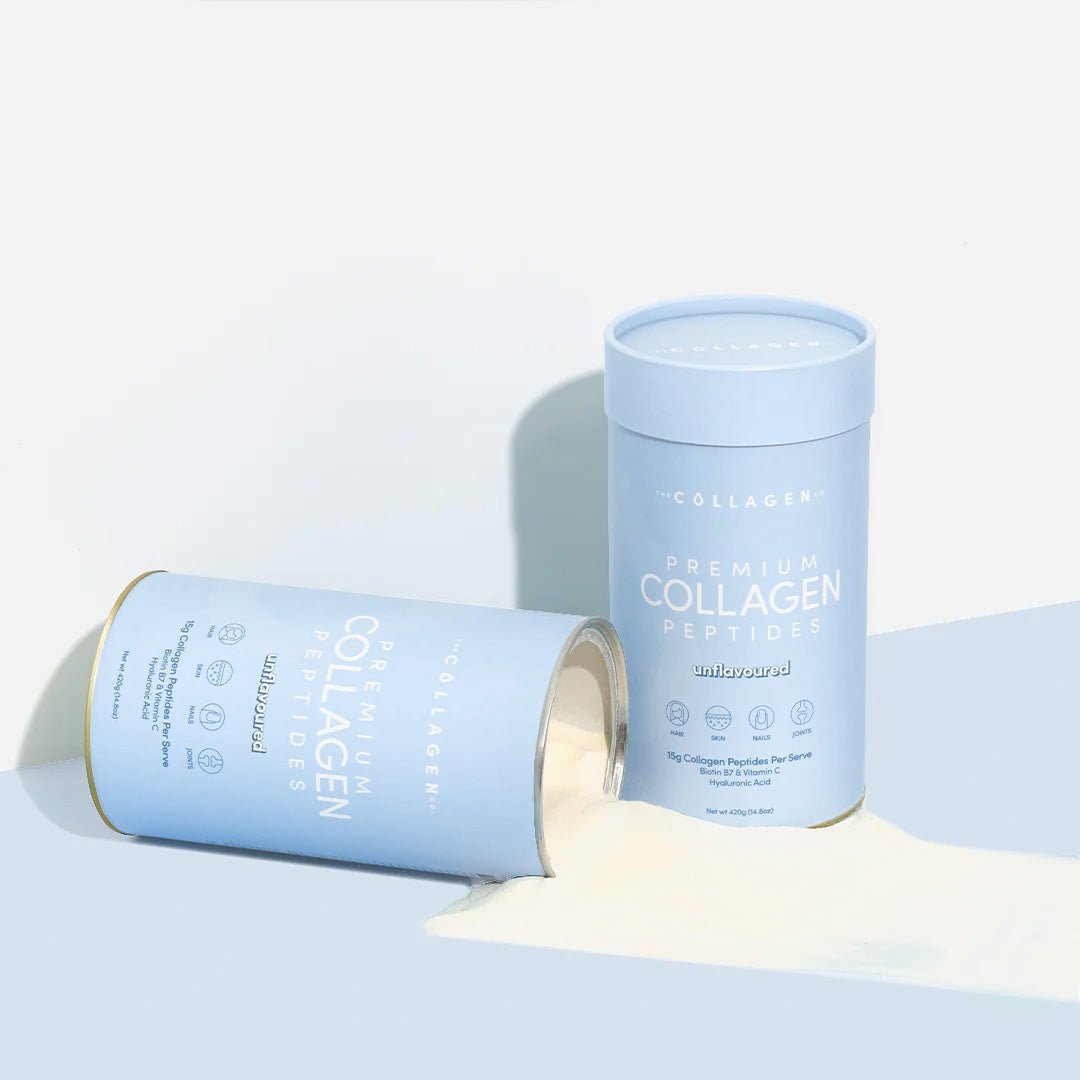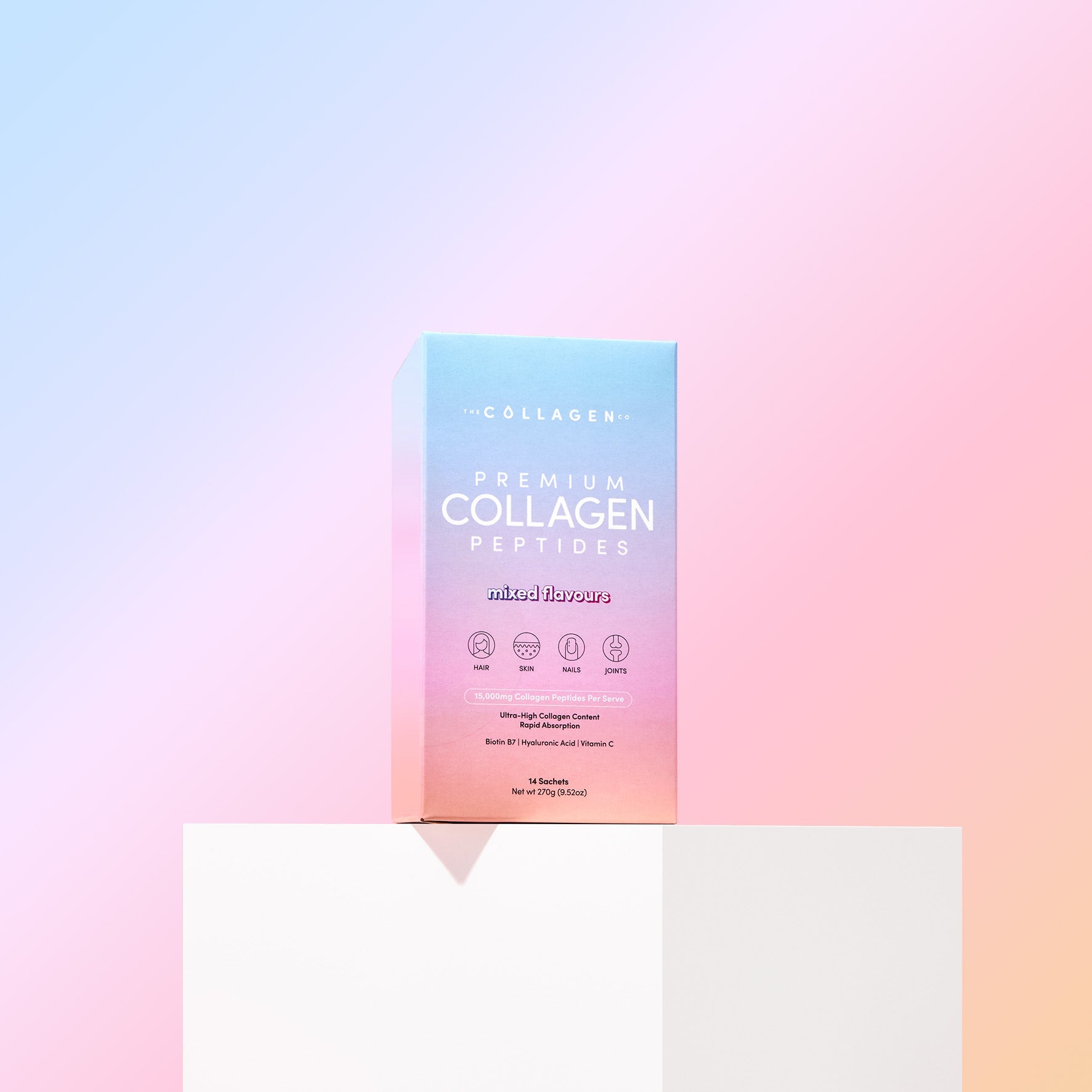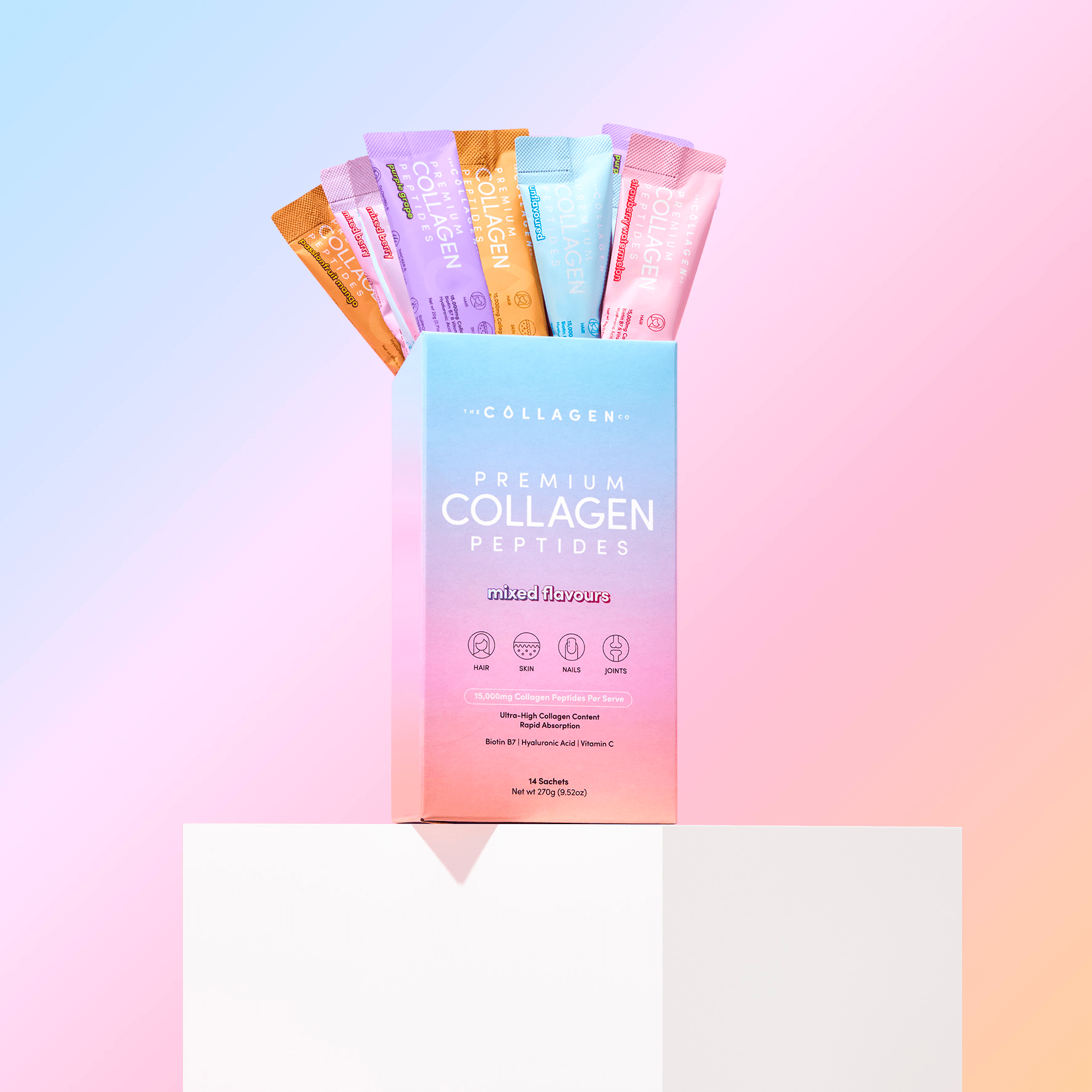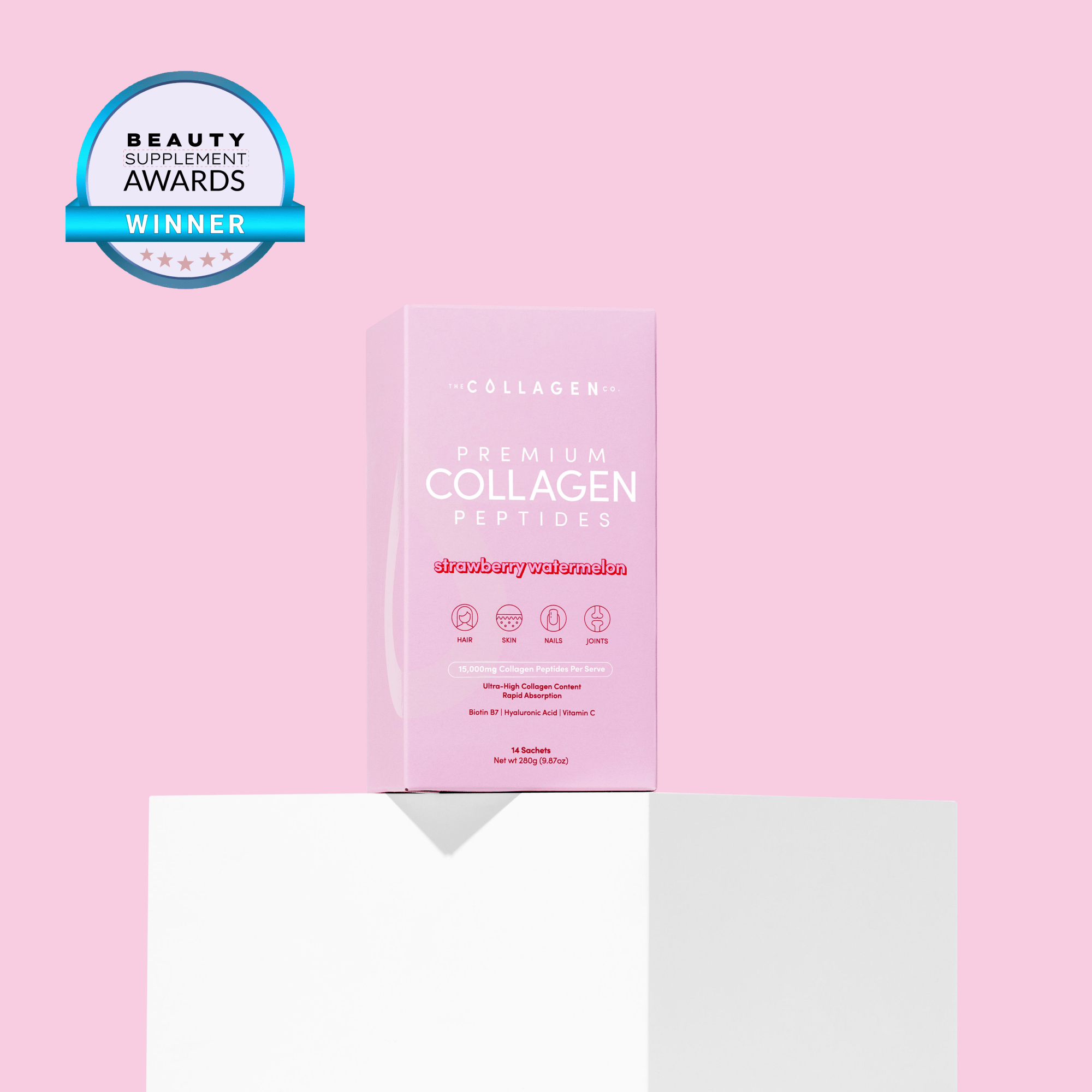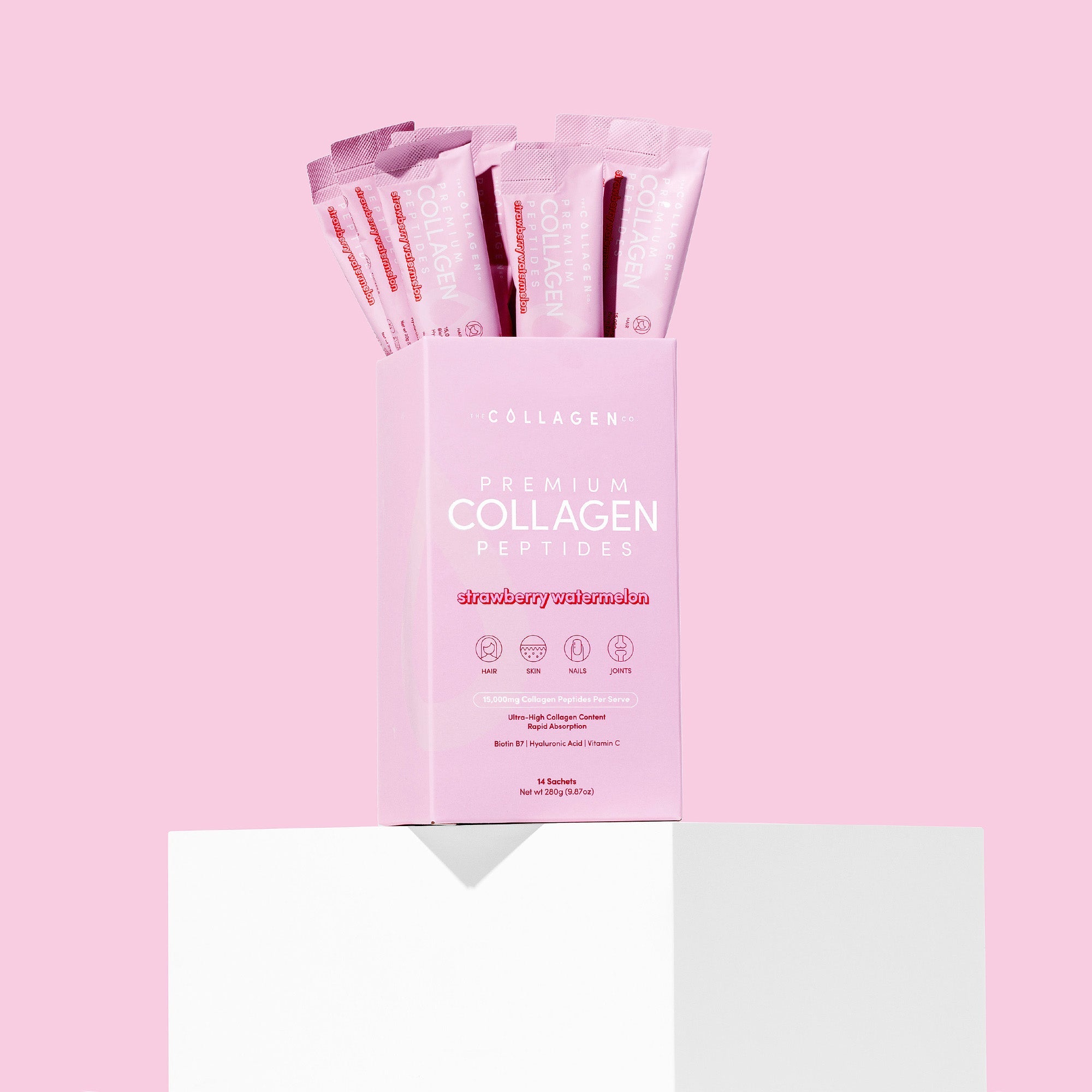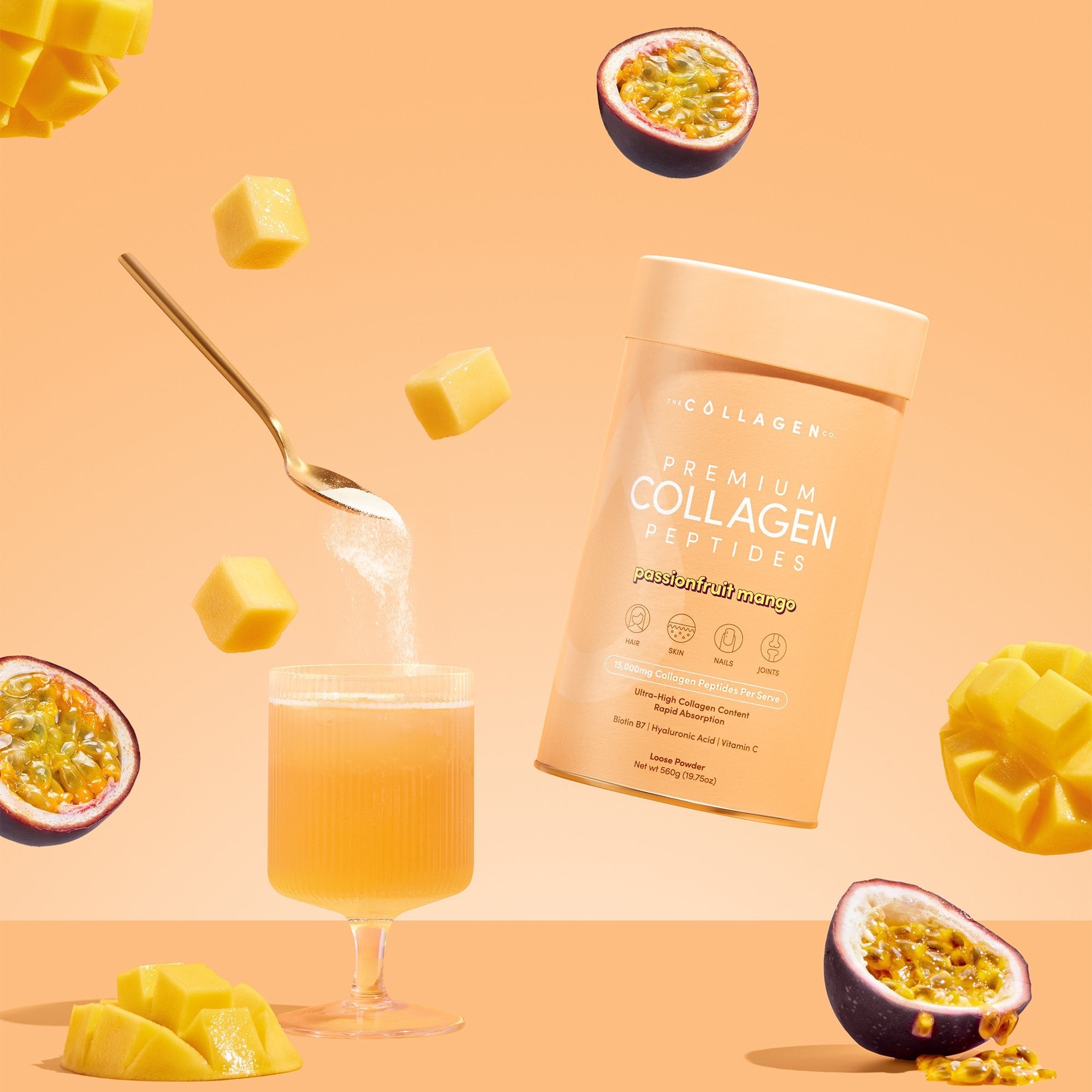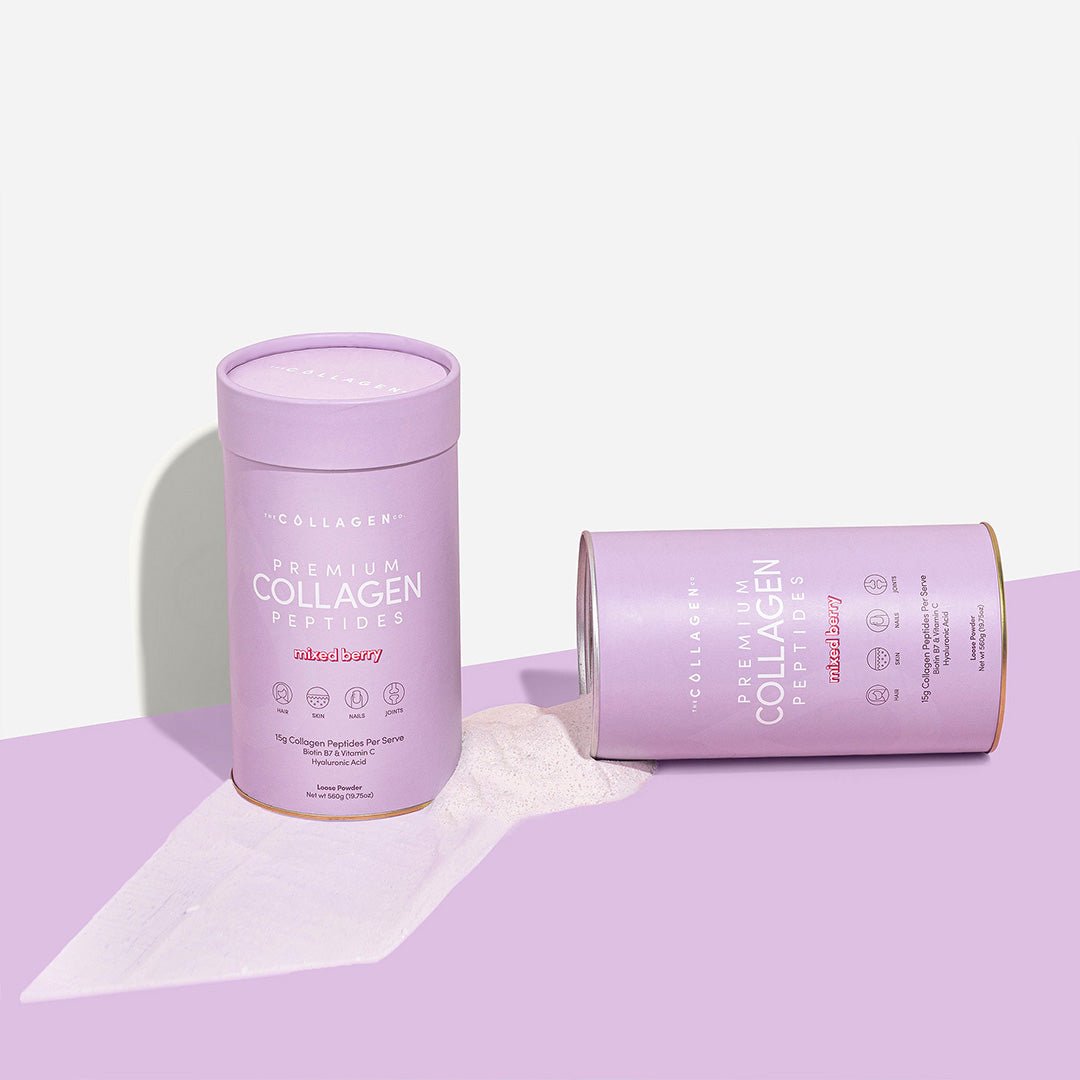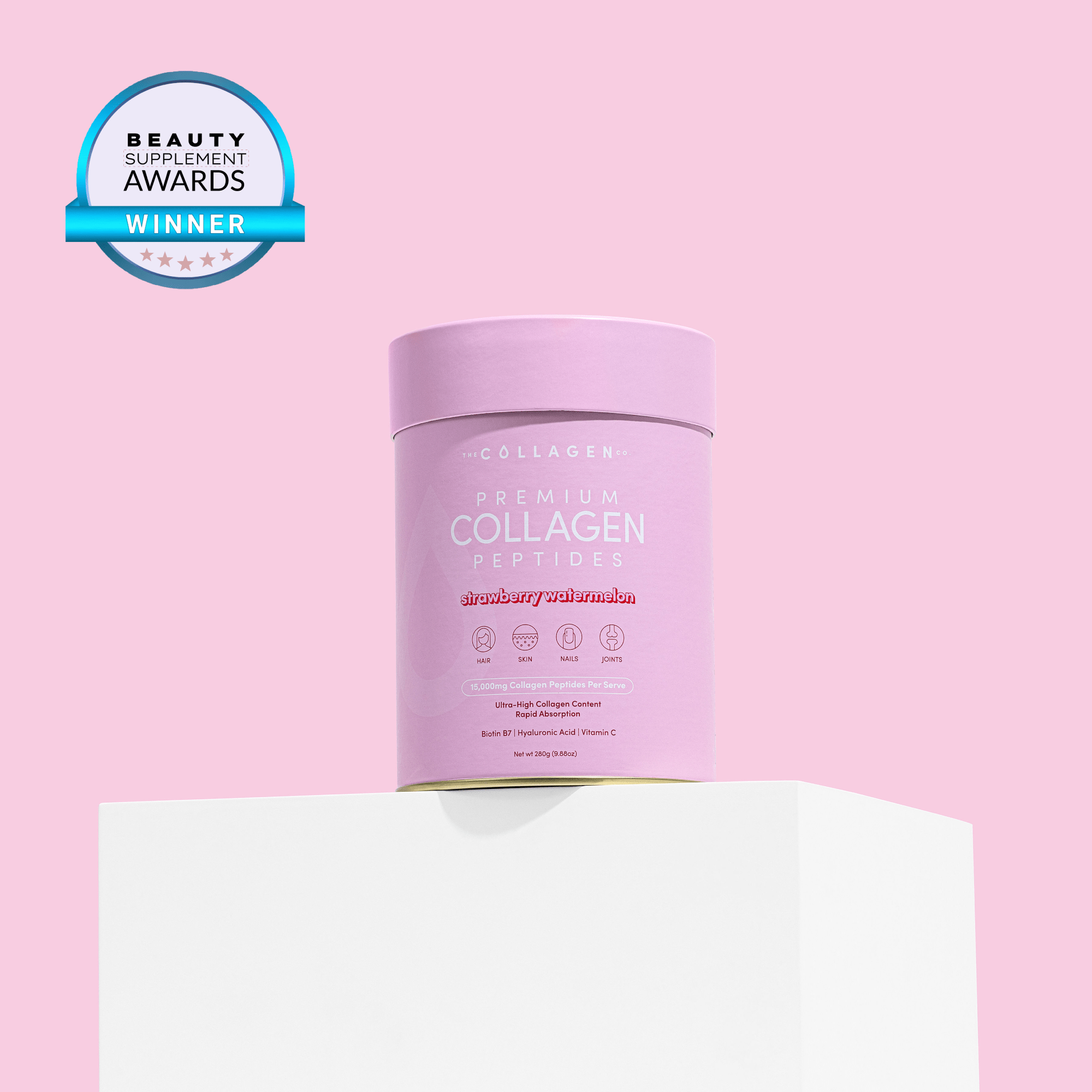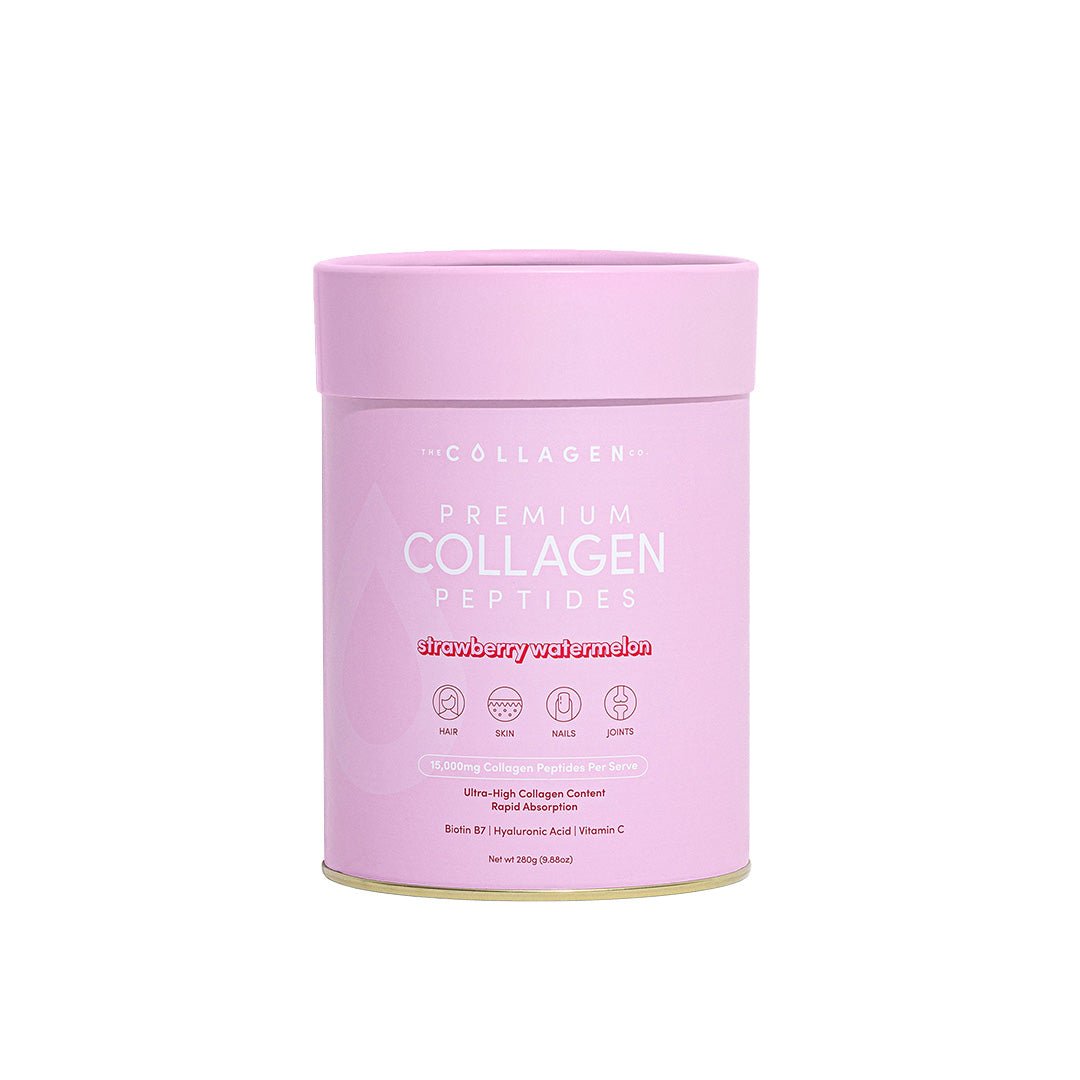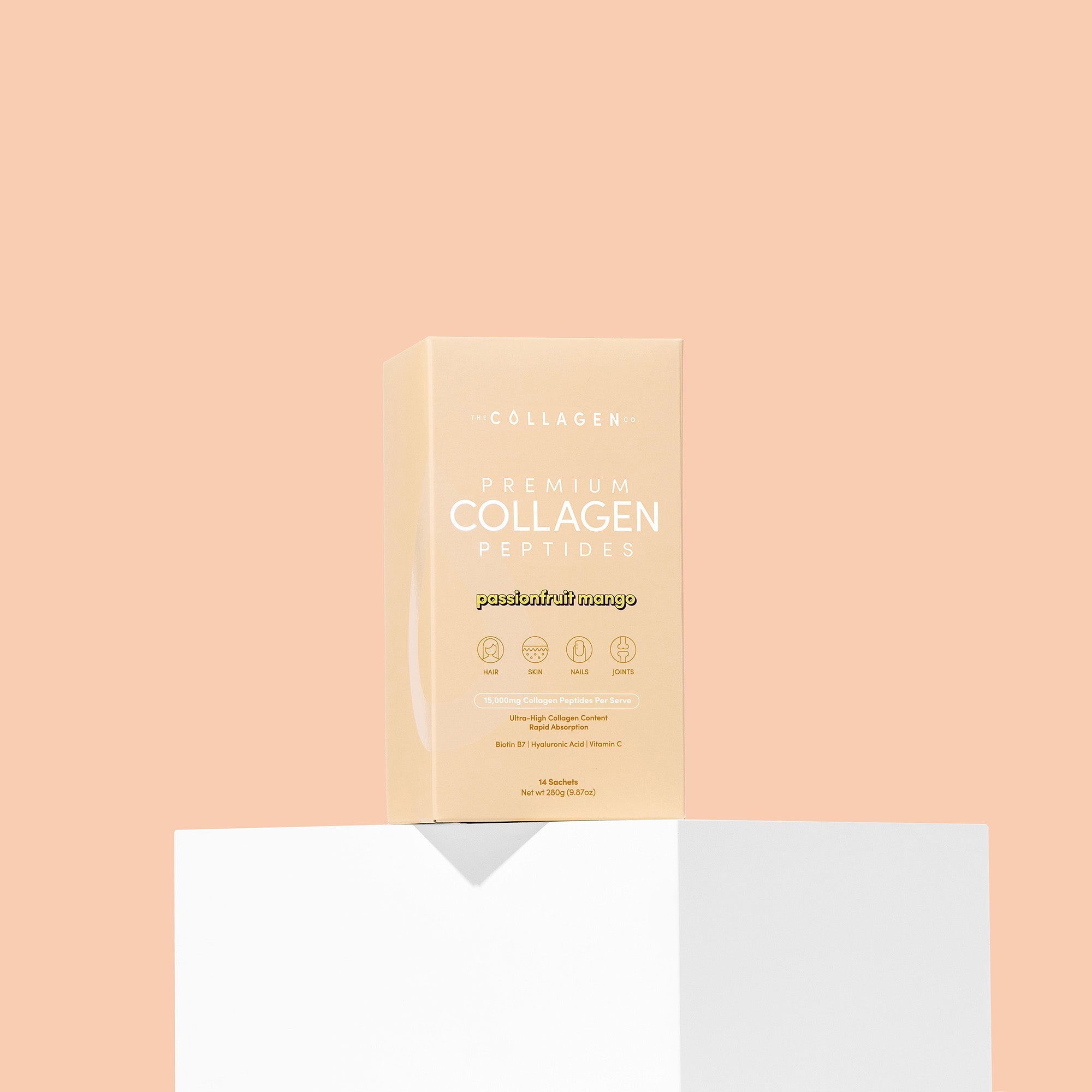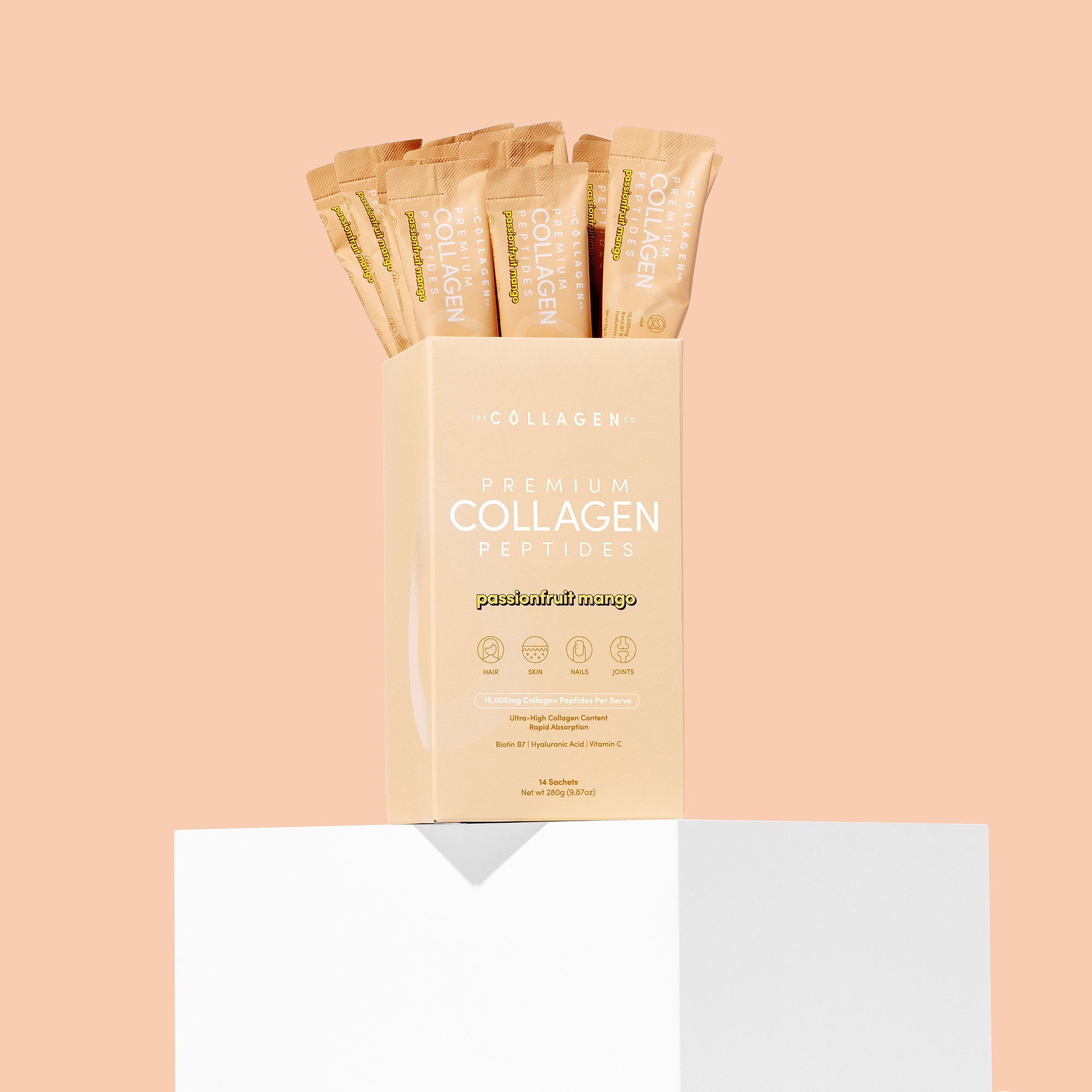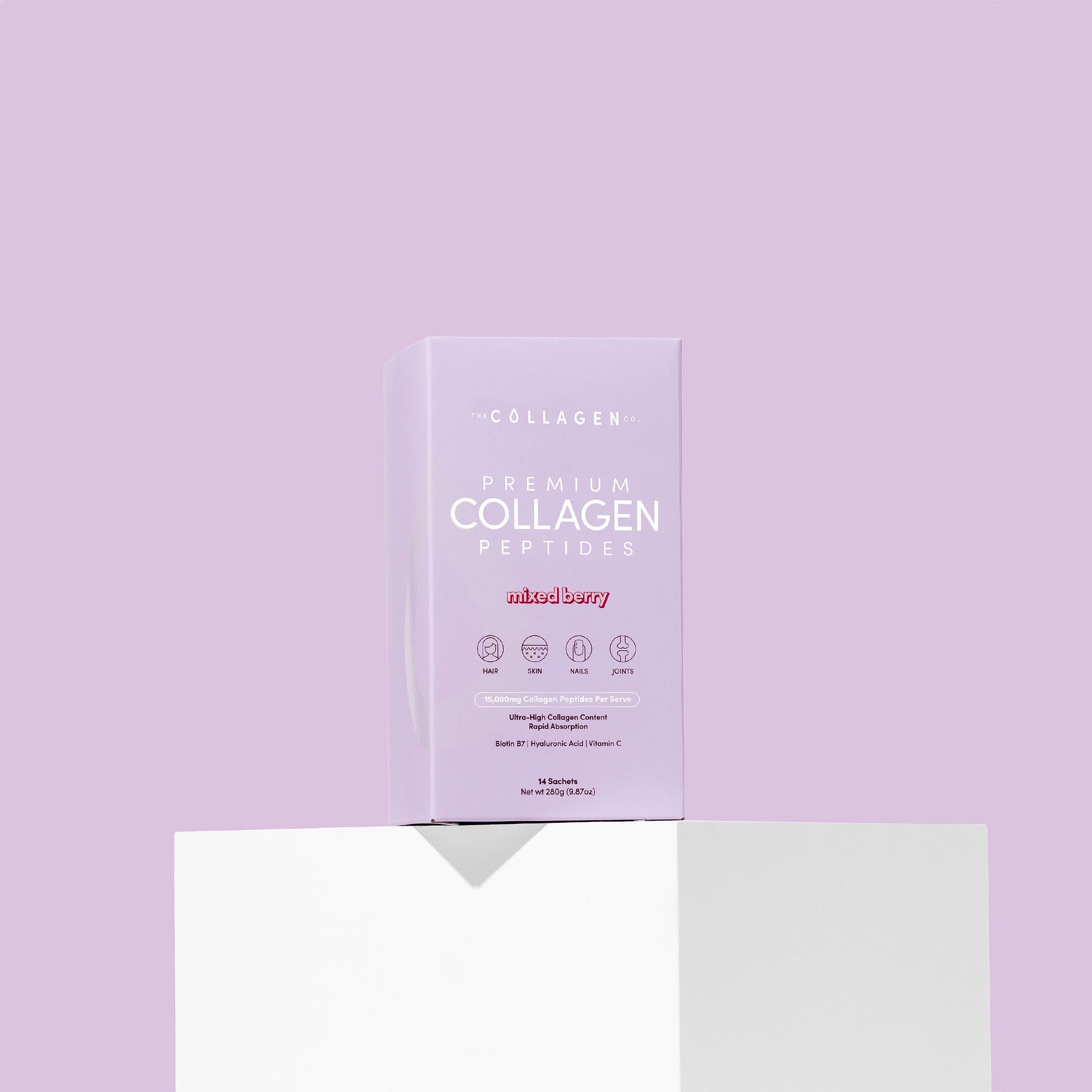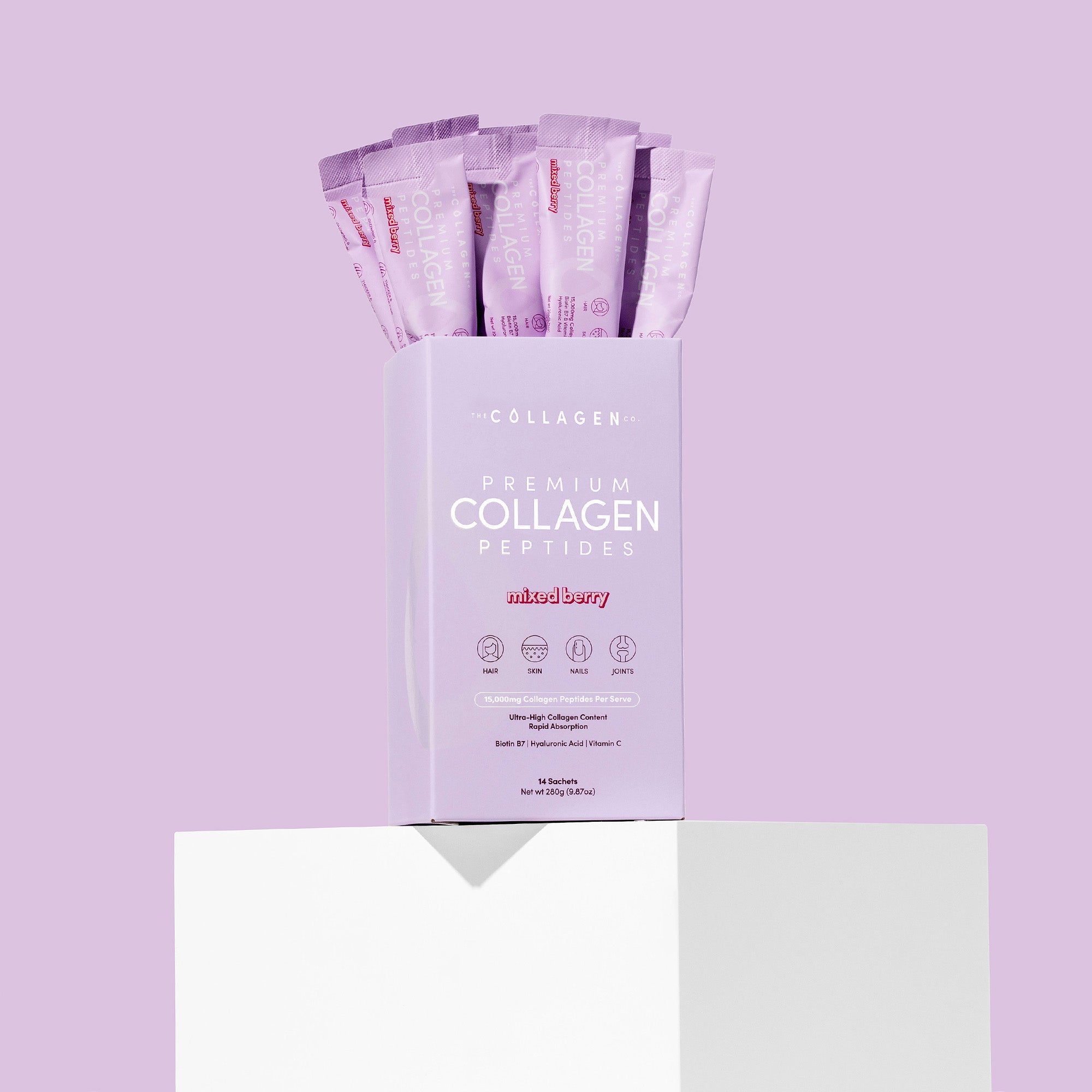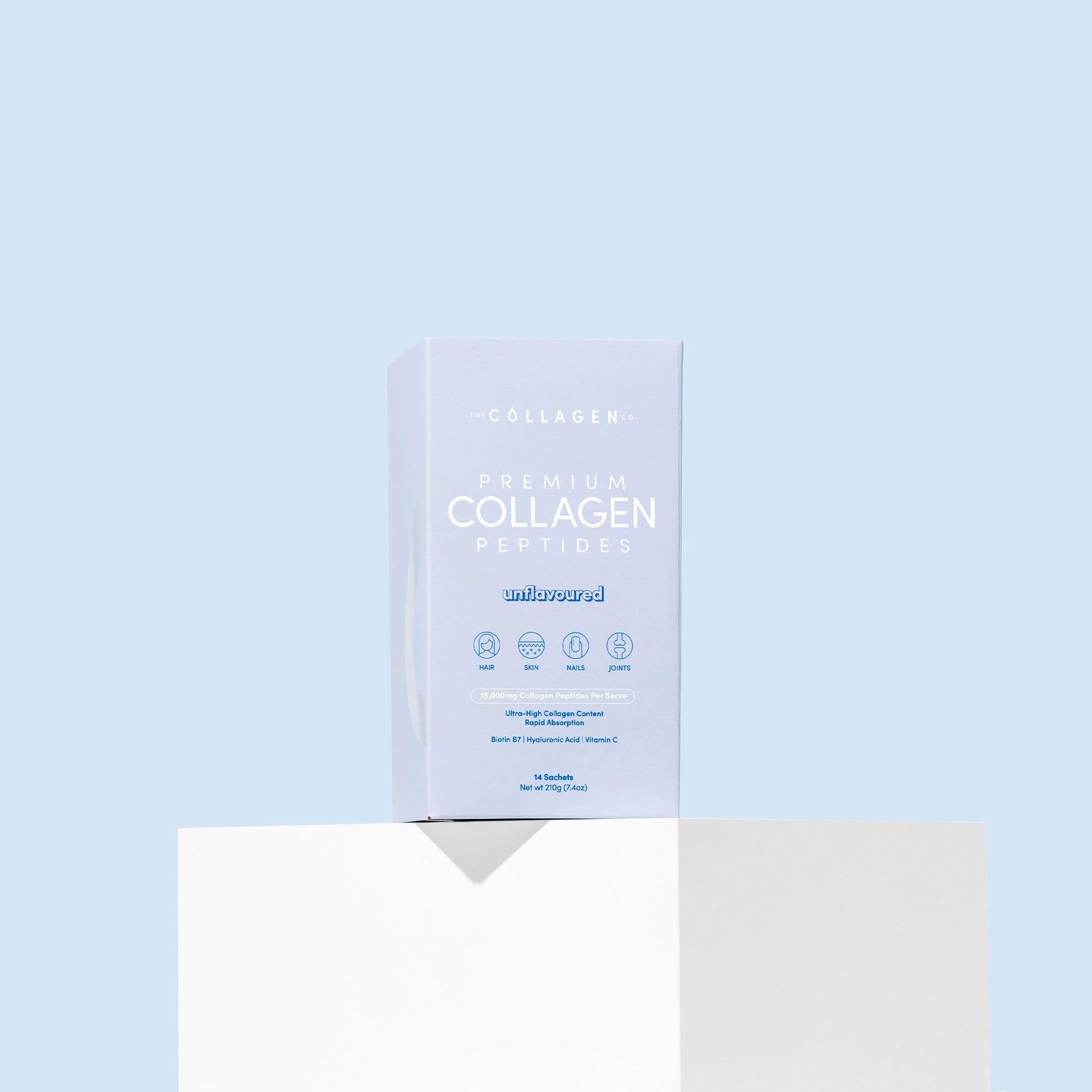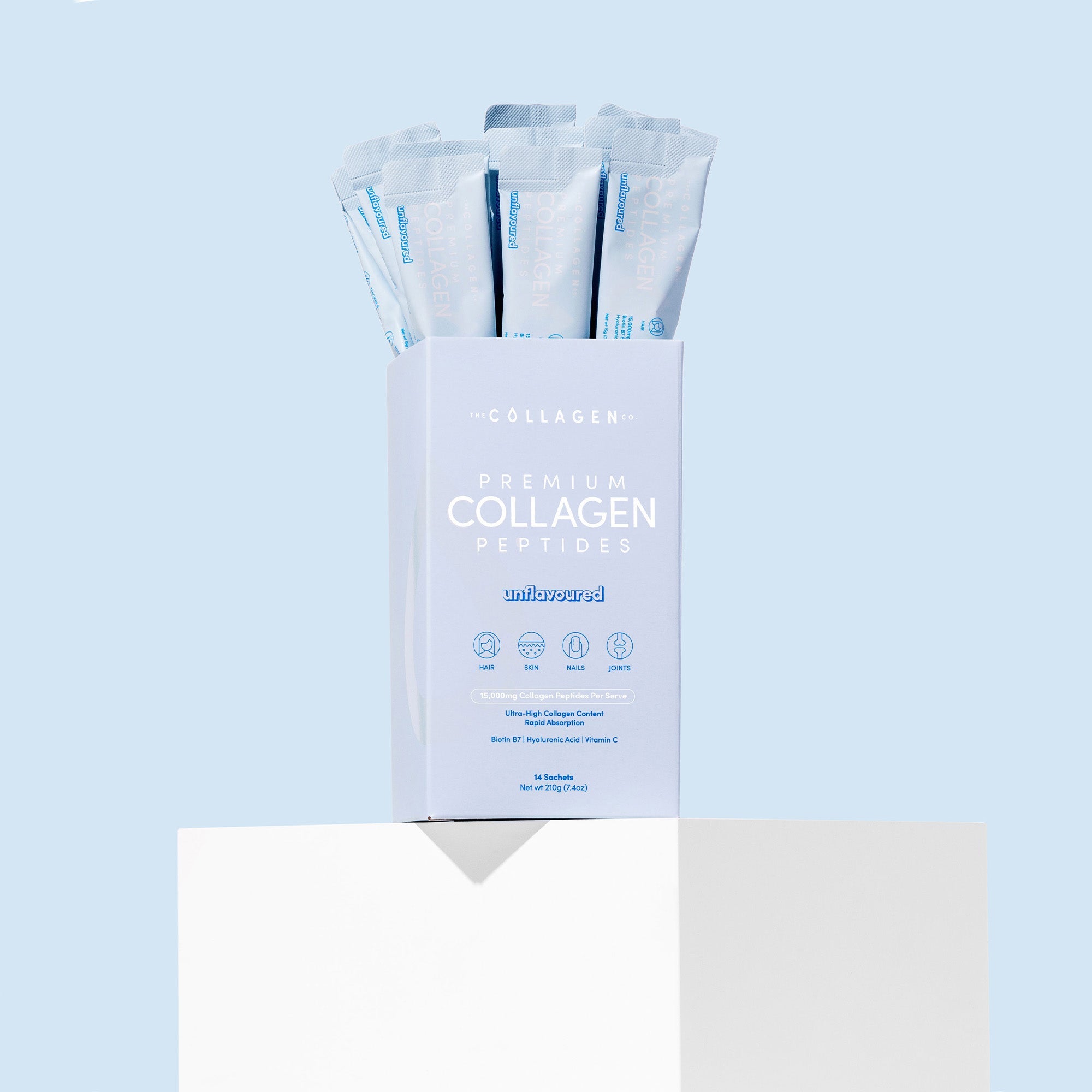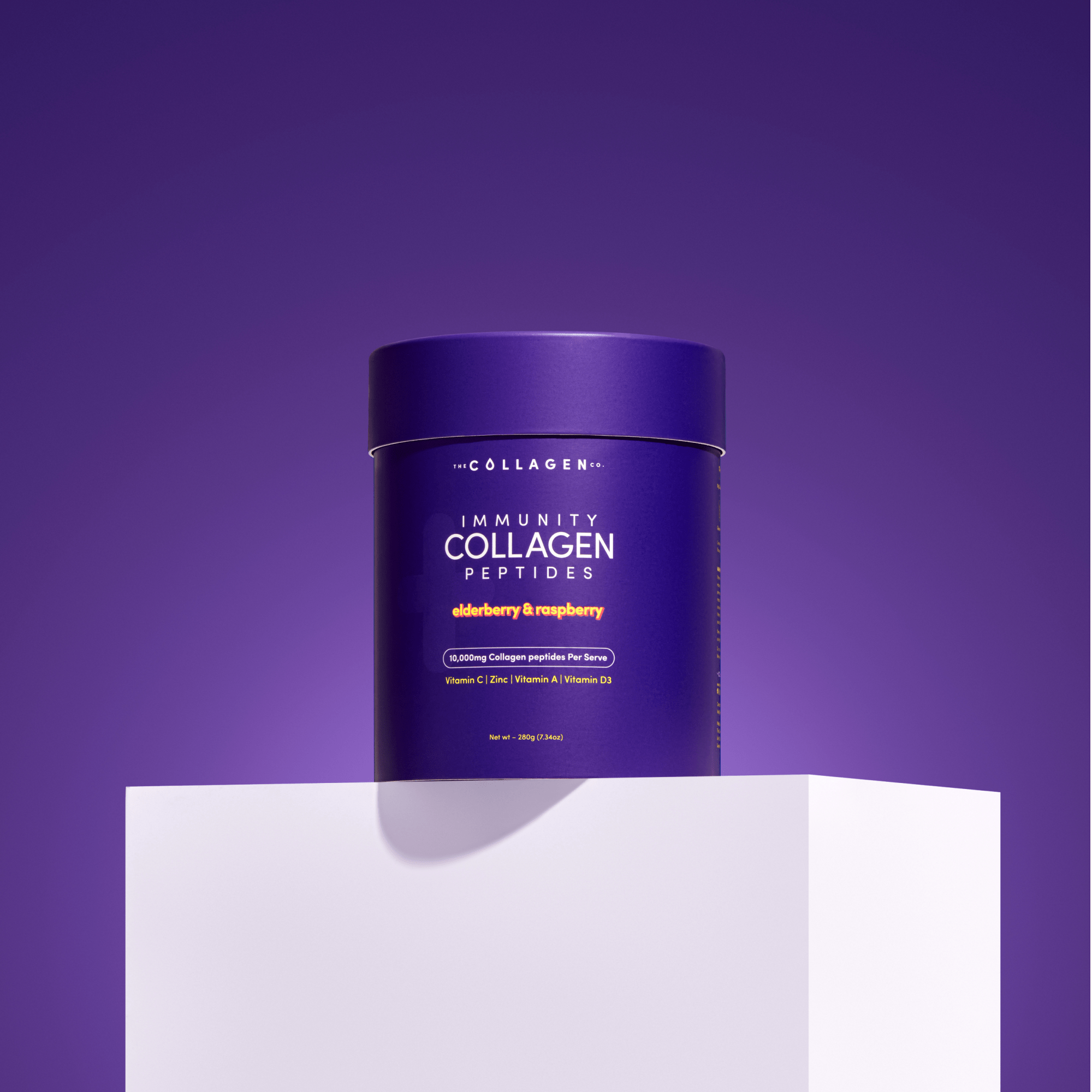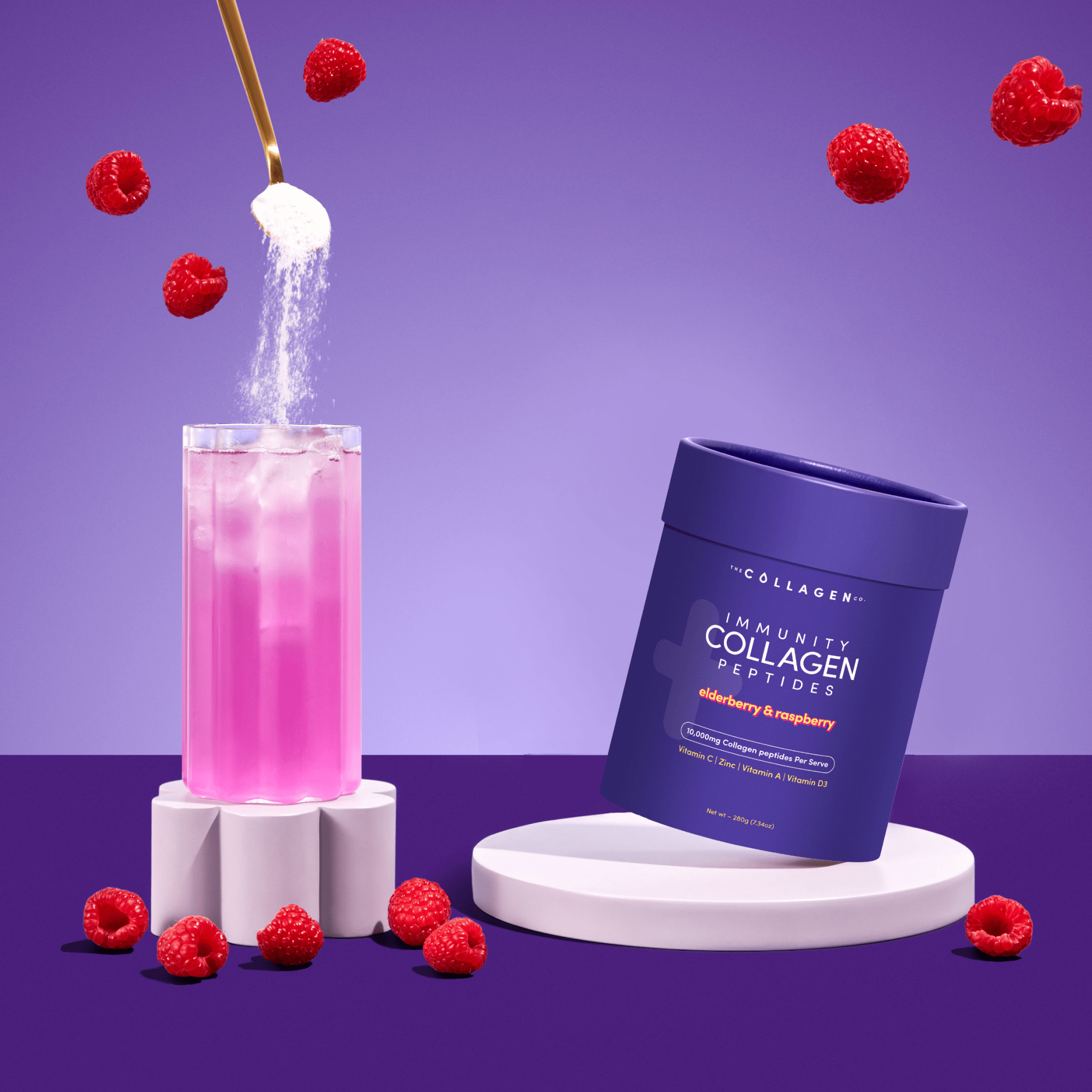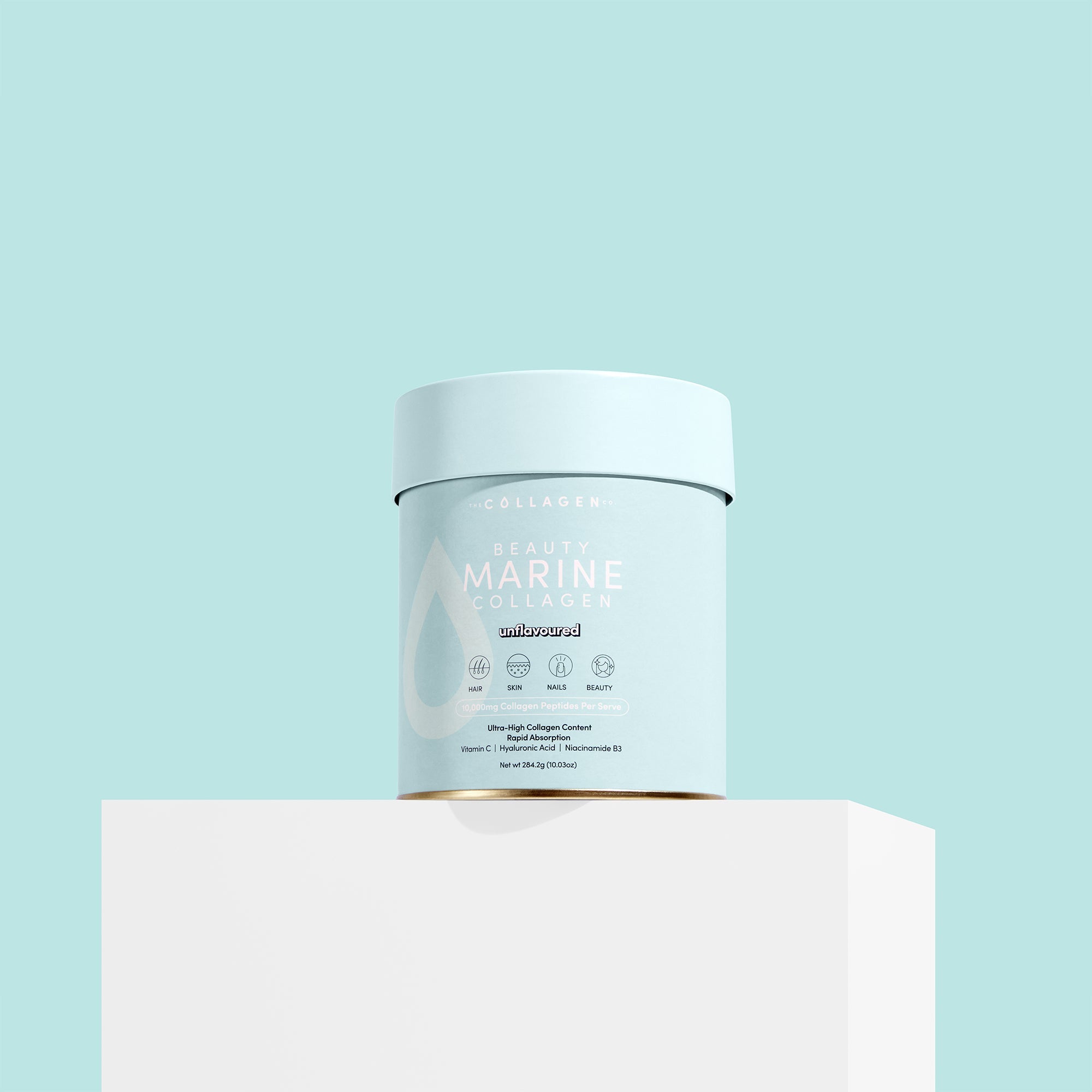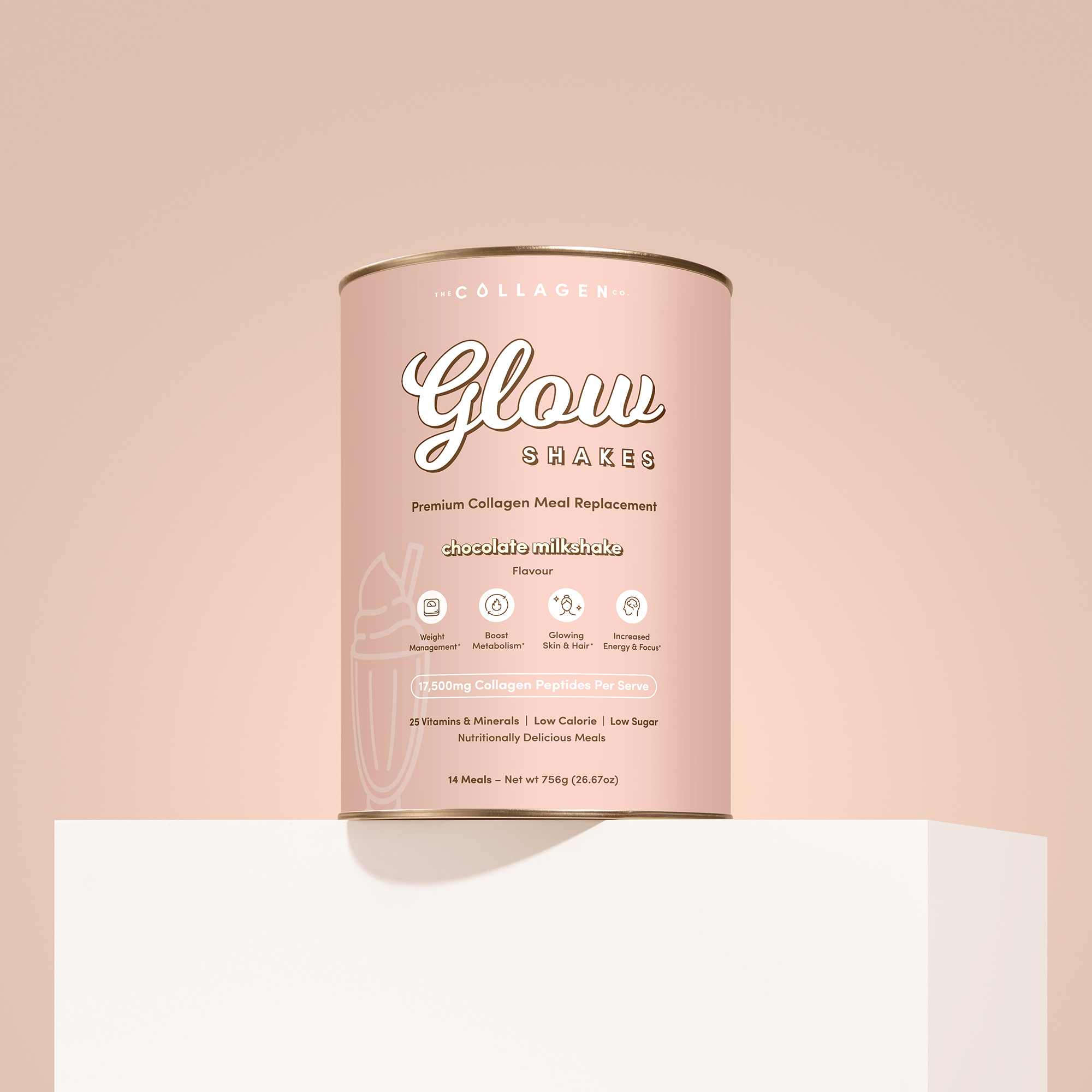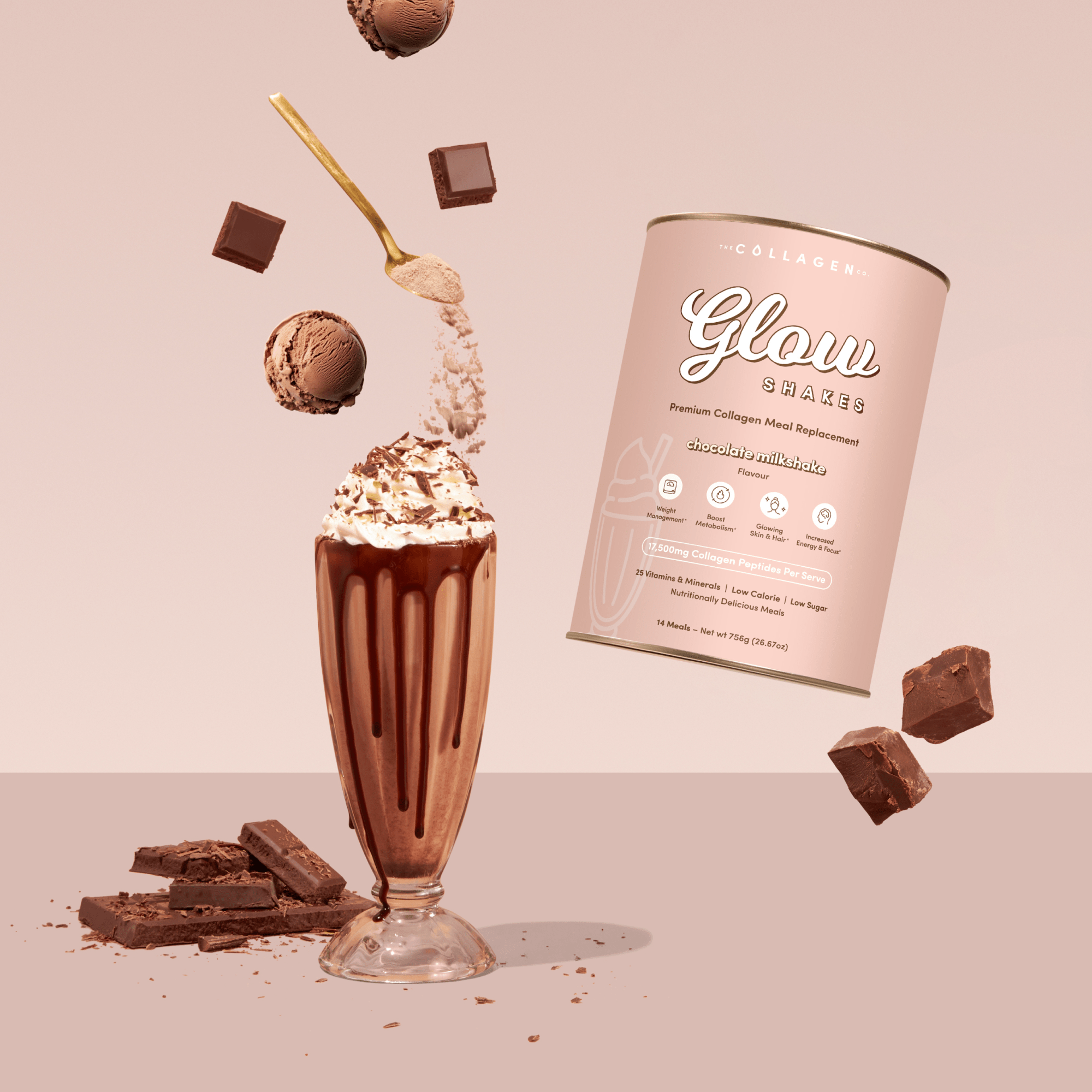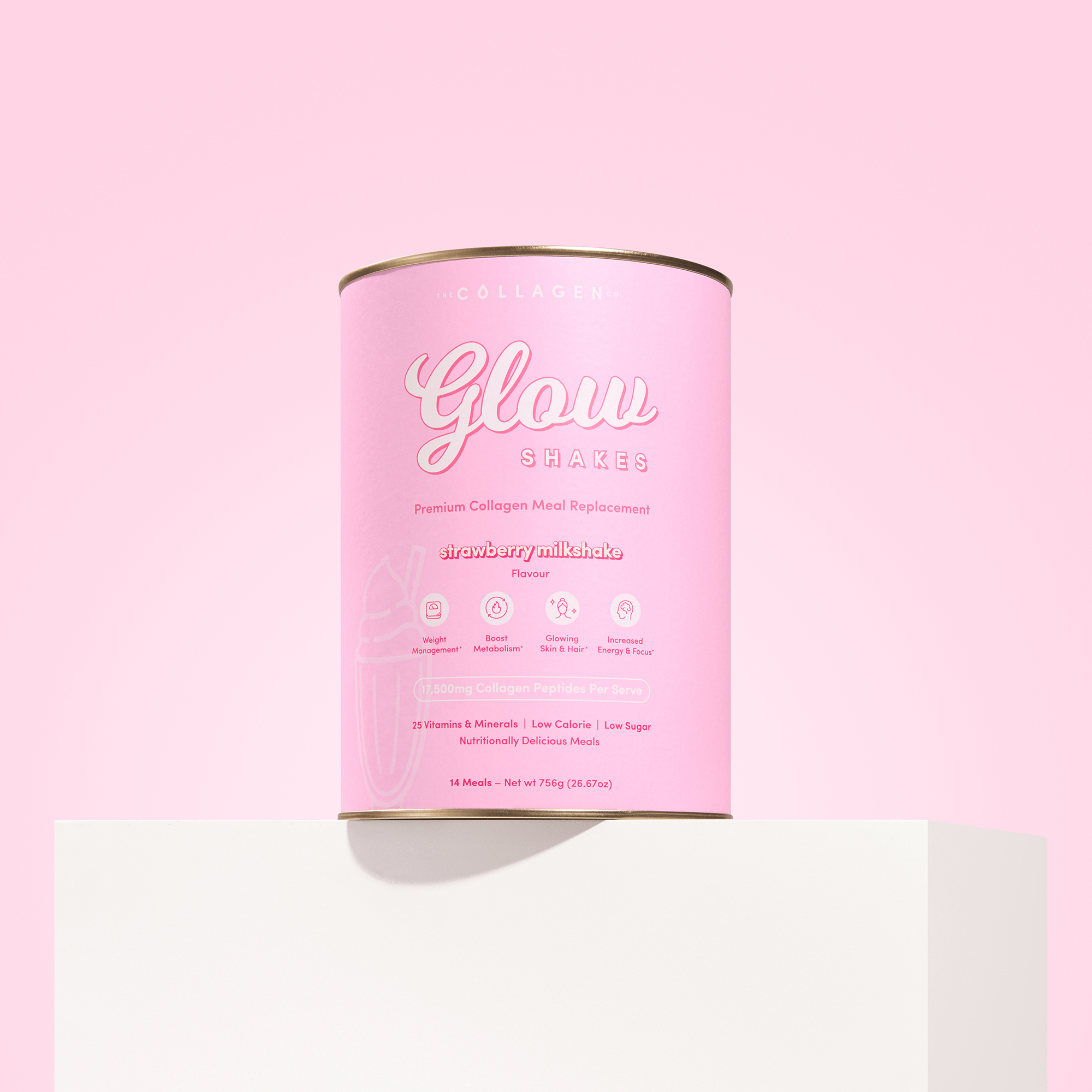Vitamin C And Skin Health: What’s The Relationship? Hint: Collagen Synthesis
Posted August 2020

Want glowing skin? Then you've probably tried every vitamin C-spiked beauty products out there–ranging from the toners to the moisturisers, to the serums. But as you know, not all topical vitamin C products are created equal. Vitamin C is notoriously unstable. Especially when it's exposed to air and light. Meaning that if you, unfortunately, pick a formula that doesn't come in an airtight pump or opaque bottle, or simply one that misses the mark, that vitamin C isn't going to make it onto your face. And you aren't going to see results. Another downside? Compared to most skincare products, they also tend to cost more per ounce. Ouch!
Does this then mean that you should give up on vitamin C if you want to score the best complexion ever? Not exactly. But you’ll have to use it in another way. Instead of applying it onto your face, you’ll have to ingest it. Find out why below.
First off, what is vitamin C?
Vitamin C, also known as L-ascorbic acid, is a water-soluble vitamin that is present in many of the fruits and vegetables you eat (e.g. broccoli, spinach, and, of course, oranges). It’s necessary for the growth, development, and repair of all body tissues. Unlike most animals, humans are unable to produce vitamin C naturally–so, it is an essential dietary component.
How does vitamin C promote firm, youthful skin?
Caught the hint in the title of this article? Yes, vitamin C has an important role to play when it comes to collagen synthesis.
What is collagen?
Before that, though, let’s first cover what collagen is. Collagen is the most abundant protein found in your body. It’s the main structural protein that forms the connective tissues throughout your body–from the skin to bones, muscles, tendons, and ligaments.
Collagen makes up a whopping 80% of your skin and works with another protein called elastin that keeps your skin elastic. You know, plump and glowy. But as you age, your body naturally starts reducing collagen production. Until, eventually, your body isn’t producing enough collagen to replace what’s broken down. If collagen keeps your skin supple and smooth, you can imagine what happens when you’re low on it: wrinkly and saggy skin.
How does vitamin C come in?
So, logically speaking, if you were to raise the levels of collagen present in your body, you'd maintain or get back your youthful appearance, right? Yes. But how do you do that? You probably already saw this coming, but two words: vitamin C.
That’s because this nutrient is essential for collagen biosynthesis. It serves as a co-factor for the enzymes prolysyl and lysyl hydroxylase–enzymes that are responsible for stabilising and cross-linking collagen molecules. Vitamin C is also known to stimulate collagen gene expression. In other words, by increasing the amounts of vitamin C in your body, you’d, in turn, be increasing your collagen production. The result? Firm, supple, glowing skin.
Does vitamin C have other benefits for the skin?
The truth is, vitamin C’s benefits for skin are vast. They extend beyond the implication of boosting collagen synthesis. Here are a few of them.
Protects the skin from oxidative stress
Free radicals are unstable atoms that form as a result of exposure to environmental and lifestyle stressors such as pollution and smoking. Over time, these free radicals can cause oxidative stress, which harms the skin and cause premature signs of aging. Thankfully, vitamin C acts as an antioxidant, which means it can help neutralise the effects of free radicals. Thus, protecting your skin from the damage of oxidative stress.
Reduces damage from sun exposure
You probably already know this: too much sun exposure can significantly damage your skin. This is where vitamin C comes in handy. Because of its potent antioxidant effects, vitamin C has been shown to exert UV-protective effects. Research indicates that it could play an important role in the reduction of acute and chronic photodamage, and could be used for the prevention of skin cancer in the future.
Acts as a depigmenting agent
Want those dark spots on your face gone ASAP? Just so you know, hyperpigmentation is due to the overproduction of melanin in the skin by melanocytes. Accordingly, if you were to prevent or reduce the production of melanin, you’d start to see those pesky dark spots slowly fade away into oblivion (yay!) How do you do that? Easy: vitamin C. It inhibits enzymatic processes that produce melanin in the skin; in turn, reducing hyperpigmentation of the skin.
Exerts anti-inflammatory effects
If you struggle with itchy, red, and angry skin, vitamin C should be your go-to supplement. That's because it exerts powerful anti-inflammatory effects, which can help calm many skin conditions, including acne vulgaris and rosacea.
What’s the right amount of vitamin C for me?
Here comes the most important question: how much vitamin C should you take daily so you can restore your skin to its natural state of luminous grace? For adults, the recommended daily amount of vitamin C is 75 mg to 90 mg a day.
Typically, the best sources of vitamin C are fruits and vegetables. But given that vitamin C in food is easily destroyed by heat, it would be beneficial for you to take a vitamin C supplement. You know, just to ensure that it does end up in your gut–and translates into glowing skin!
Oh, and just before you go… Here's a bonus tip. To get skin that permanently looks like you're fresh off vacation (i.e. healthy, radiant, and clear), you can add collagen peptides into the mix. Sounds like too many pills to take?
Don't worry; our delicious-tasting Premium Collagen Peptides delivers a whopping 80 mg of vitamin C and 15 g of grass-fed pasture-raised bioactive collagen peptides–in just one serving. That’s everything you need to wake up to the best complexion ever!



